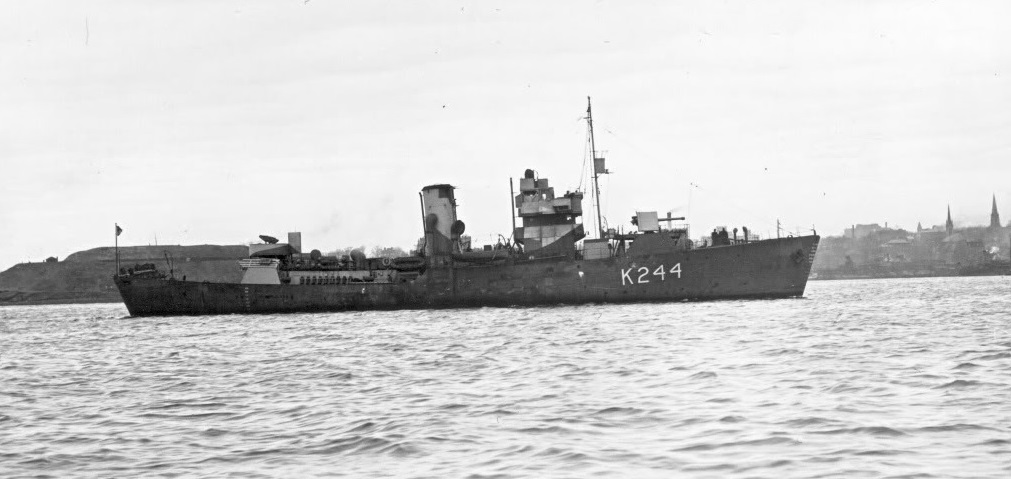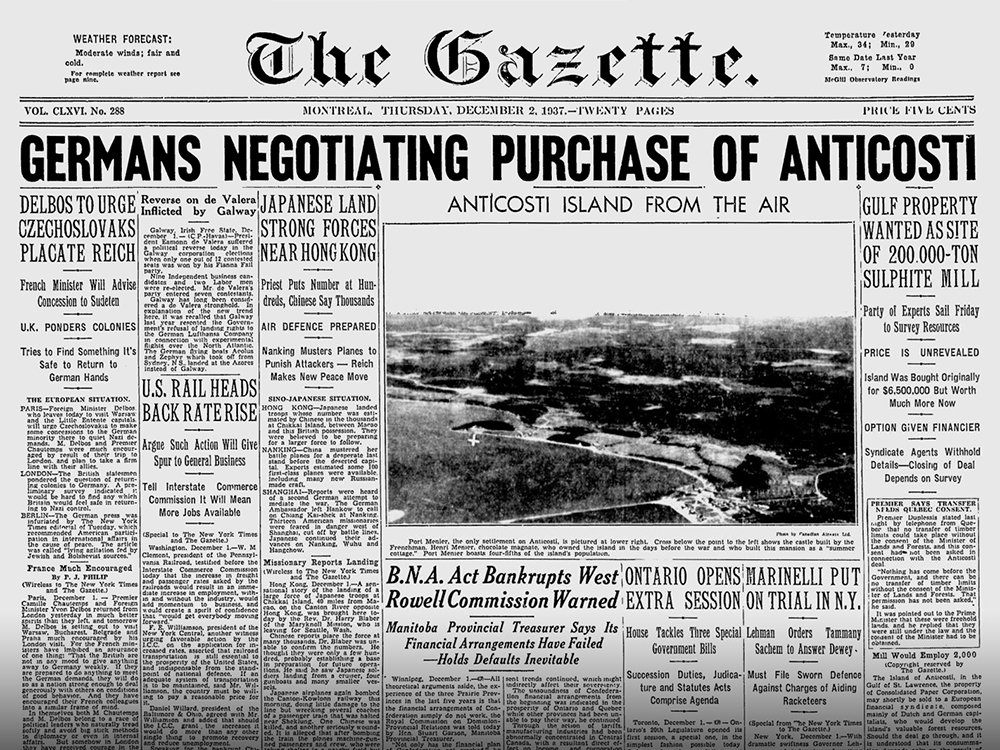
HMCS Charlottetown was torpedoed and sunk by U-517 in the Saint Lawrence River near Cap Chat, Que., on Sept. 11, 1942. Nine of the ship’s company were lost.
The submarine attacks in the Gulf of St. Lawrence during the Second World War were the stuff of nightmares. How much worse would it have been if Germany had established a toehold off the coast of Quebec?
That may be just what they tried to do in 1937 in an attempt to buy Anticosti Island, a stretch of real estate 200 kilometres long and 50 wide, situated in the mouth of the Saint Lawrence River about 70 kilometres north of the Gaspé Peninsula.
The island, which had been privately owned since 1680, was sold in the mid-1920s to a pulp and paper company. During the Great Depression, the Consolidated Paper Corporation put the island up for sale.
In 1937, an option to purchase the land was obtained by Alois Miedl, an art dealer and banker who moved to Amsterdam from Germany in 1932 and had ties to the Nazi party.
That fall, German surveyors gathered wood samples and checked out suitable sites for a port. In December, a journalist, who claimed to have overheard German discussions, told government officials the surveyors were actually military experts working for German Chancellor Adolf Hitler.
“Use of Anticosti Island as a base of supply for personnel or material by a foreign raider, surface ship or submarines would be most dangerous,” said Rear Admiral Percy Nelles in a memo quoted in The Blue Shirts: Adrien Arcand and Fascist Anti-Semitism in Canada.
In early 1938, External Affairs officials met with the German and Dutch businessmen who said their consortium wanted to produce pulp for writing paper and textiles. The plan would invest $14 million and provide up to 2,500 jobs developing the property and 6,000 permanent jobs once operating.

The front page of The Gazette on Dec. 2, 1937. [Montreal Gazette/Google News Archives]
On April 7, a United States congressman inquired about the sale and the island’s suitability as a naval or air base. One day later, Hermann Göering, who during the war was supplied with looted art by Miedl, wrote to Prime Minister Mackenzie King playing up the project’s economic advantage to Canada, inquiring about legalities and downplaying speculation about military involvement.
With war clouds gathering, there was a fear the island could become a port to serve an enemy war effort—or even harbour submarines. In May, King reassured Parliament that foreign control of the island would not be allowed.
In June, “concerns for Gulf security triggered a defence plan,” said Michael Hadley in U-Boats Against Canada: German Submarines in Canadian Waters.
Defence Minister Ian Mackenzie said whether the Germans wanted a source of raw material or to establish a military base, “one is as alarming as the other.”
The issue was tossed back and forth like the hot political potato it was. How much control would either the Quebec or federal governments be able to maintain over the proposed operations? Were consortium executives working on behalf of Hitler or businessmen as they claimed? Could Canada block the sale by imposing an embargo on the export of pulpwood, in contravention of a trade agreement? Should the sale proceed, with the RCMP looking over the company’s shoulders? Although it had some public support, the federal government rejected buying the island.
The option to purchase expired in mid-September 1938. In 1939, a search determined there was no submarine base on the island or cache of food or fuel.
Foreign ownership of Anticosti has not been an issue since 1974, when Quebec bought the island.

A fisherman on Rivière à l’Huile on Anticosti Island. [Wikimedia]
Advertisement





















